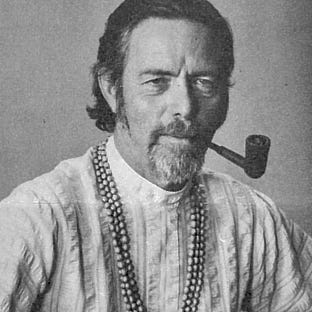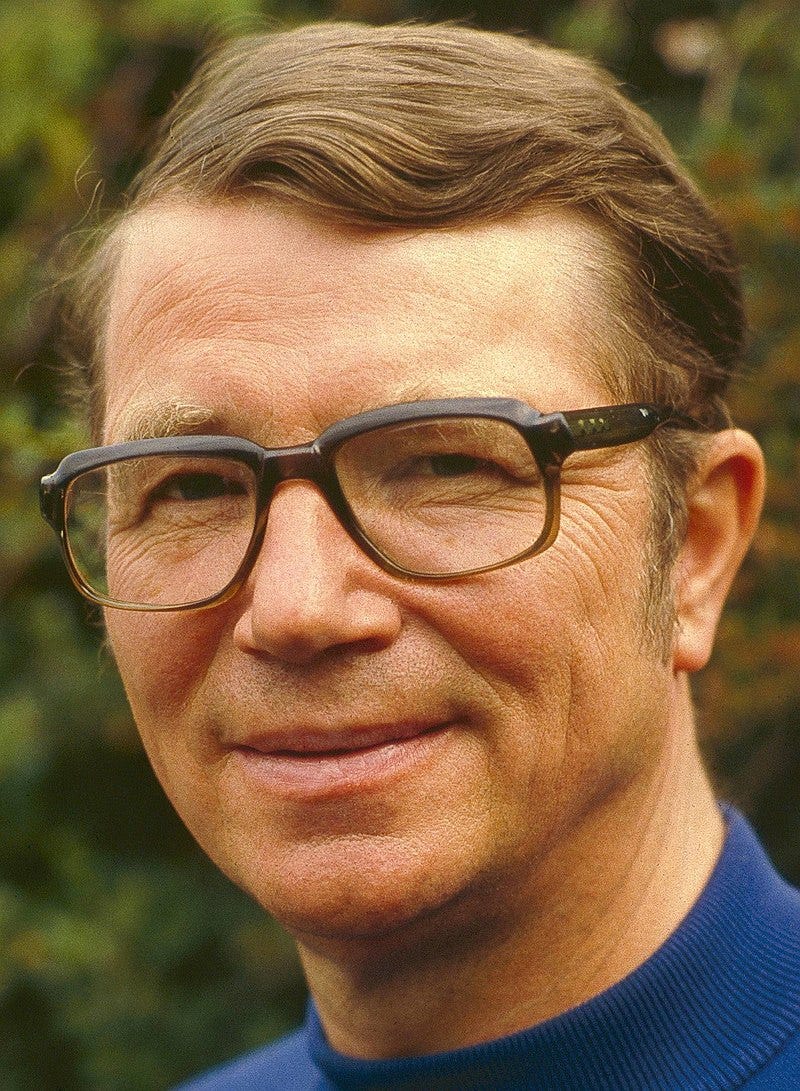Mysticism as the path to Political and Social Change (Part I)
The Aristocratic Radicalism of Mystics and Occult Thinkers
James O’Meara has a book out, Mysticism After Modernism: Crowley, Evola, Neville, Watts, Colin Wilson, & Other Populist Gurus, published by Manticore Press. The book is about where mysticism intersects with culture and politics, rather than some purely academic look at mysticism and the occult. It is also about thinkers who used magic to enact real world change.
Much of the Right is dismissive or derisive of the occult, ranging from conspiracy theories about evil illuminati occultists to dismissing the New Age scene as for leftwing Hippies. Regardless, there is a lot of crossover appeal and syncretic occultism. Even New Thinking Allowed’s Jeffrey Mishlove, who is more from the hippie culture in Berkeley and is a universalist, has many fans on the New Right. There is a rich tradition of occultism on the Right, as well as overblown allegations that there is an esotericism/occult to fascism pipeline, including Savitri Devi and Julius Evola. Not to mention the link between the New Age scene and libertarianism. Mysticism is ideologically neutral and can be tailored to any political ideology or subculture.
The thinkers discussed in O’Meara’s book include, William S. Burroughs, Aleister Crowley, Colin Wilson, Alan Watts, Neville Goddard, and Julius Evola. It is important to counter the Hippie stereotype about New Age gurus and mystics, though out of these thinkers, only Evola is thought of as traditionalist or rightwing.
Source: wikipedia.org
Alan Watts was more of the Right than people assume, even if he often came across as a Hippie, criticizing tribalism and calling for people to just go with the flow. Watts mocked the dilatants of the New Age scene and hippie counter-culture, and also spoke out against modern psychiatry. Besides Eastern Spirituality, Watts’s influences ranged from Jung, to Evola, and Nietzsche. Watts said that it was inspiration from the courage and spirit of Nietzsche that kept him out of University. Watts called upon people to escape the bullshit of modern society, including burecracy, bullshit jobs, conformity, arbitrary social mores, rules, and life scripts, that are keeping us enslaved. This went beyond hippie egalitarian individualism, but a call to tap into vitality and embrace non-conformity in a quasi-elitist or Nietzschean sense.
In Alan Watt’s youth, he was a follower of the quasi-fascist, Serbian philosopher and mystical guru, Dimitrije Mitrinović. Mitrinović was an advocate of Guild Socialism, Social Credit, and European Unity, though was anti-Hitler. In Watt’s book, Behold the Spirit, which he wrote as an Anglican Priest, like Oswald Spengler his view was that there is a spiritual basis for how each civilizations is formed. As an Anglican priest, Watts said “love your enemy, but love him as your enemy.”
There are examples of Watts’ speeches that sound more rightwing. For instance, in his speech, You Are It, he expresses spiritual elitist sentiment, and commented to a young woman that her beauty matters more than her credentials because it comes from biology, which sounds like something that Bronze Age Pervert would say. In another talk, You Cannot Improve Yourself, he critiques both the cult of self-improvement and eugenics, while also embracing hereditarian thinking. His point was that different genetic traits are suited for different circumstances. He also had 7 children, so you could say that he was a traditionalist in his personal life, despite being married multiple times.
While Watts took the Hippie Buddhist approach that money was just an illusion, he also expressed anti-usury and anti-fiat money views, basically that wealth must be something tangible. In his book, "Does it Matter, he has an essay, Wealthy vs. Money, where he advocated for something like C.H Douglas’ Social Credit, which is superior to Andrew Yang’s UBI. In that essay, which is Watt’s most political, he calls for restructuring society to replace work with leisure, but also for a society based upon aesthetics and beauty.
Watts had a strong interest in Buddhism, though Schopenhauer, was known as the first western Buddhist. The Buddhist approach of detachment from all that is material and belief that everything is transient seems demoralizing and nihilistic. Colin Wilson disliked Buddhism for this reason. However, a change in attitude and consciousness allows for a mindset of freedom and opens up realms of possibility for creativity. Watts was actually not an asceticist but rather a dandy who embraced the passions of the senses, including the finer things in life.
The traditionalist rightwing framework is demoralizing, such as the idea that we must accept cycles of decay. However, Evola was not about just sitting around and waiting for the Kali Yuga. This relates to QAnon’s quasi-Gnostic, passive mentality of just “trust the plan.” Not to mention that the woke left is also quasi Gnostic. However, Gnosticism does not have to be passive and we must dream big and believe that anything is possible, if you want to call that the gold pill.
source: wikipedia.org
Colin Wilson was briefly famous for his novel, The Outsider, which celebrities including, John Lennon, David Bowie, Gerry Rafferty, and Muammar Gaddafi, were fans of. Wilson was a prolific author, writing about topics ranging from the Occult, to crime thrillers, and science fiction and horror inspired by HP Lovecraft. Wilson is sometimes associated with the Angry Young Men literary subculture, basically the British equivalent of the Beats. However, the Angry Young Men were more leftist and about mocking and denigrating culture, and Wilson was actually critical of them.
Right after WWII, spirituality and the cult of Nietzsche were out of fashion, in favor of materialism and rationalism. However, during the 60s counter-culture Wilson tried to get in on the newfound appreciation of Lovecraft, Aleister Crowley, and mysticism. While Wilson was associated with existentialism, he was much more of a romanticist, yearning for the 19th Century optimism and heroism, that was missing in the modern era. Wilson’s approach to mysticism revolved around the theme of consciousness. Basically feeling alive, and experiencing the full intensity of senses or peak experience.
While Colin Wilson was not overtly political, he was smeared as fascist, due to his correspondence with the fascist British politician, Oswald Mosley. Wilson was involved with the human potential movement, and believed that humans had hidden potential, as well as a Nietzschean ideal that humans could transcend beyond the evolutionary ladder to become Übermensch. Wilson said that “Human beings are pretty trivial insects. No wonder so many of them are mediocre.” He also suggested that “cancer kills people because they lack vitality.” Wilson was an elitist because he had contempt for the conformist masses. However, he was also a populist, growing up working class and a college drop-out, who scorned credentialism and the elite Oxford/Cambridge bubble.
Alan Watts was into oriental spirituality, Neville Goddard into William Blake and the Bible, Colin Wilson into Romanticism, and Aleister Crowley into rediscovering ancient lost magic, such as Hermeticism. Most of these thinkers proclaimed to be individualists, yet wanted to be part of something greater which liberal individualism can’t provide. These thinkers were all spiritual elitists, even if they never explicitly said so. That is what sets them apart from the Left, even if some of them may have supported socialism or embraced hedonism. Certainly Burroughs and Crowley, as the wickedest man in the world, were "degenerates" by "trad standards. Even Wilson’s writings about serial killers and sexual deviants, like the Marquis De Sade, talked about them as seekers of a radical expansion of consciousness rather than in moralistic terms.
Wilson’s, The Outsider, does not merely talk about non-conformity or rebelling against authority for the sake of it. Rather Wilson viewed the Outsider as an archetype who could not connect with society because they were exceptional, but also the Outsider as a spiritual archetype. The Outsider is not a cynic but rather an idealist and romantic, who envisions how the World should ideally be.
The creative or artistic caste is the natural aristocracy, which could be described as aristocratic radicalism or aristocratic individualism, or even like a Brahmin/priestly or shaman caste. What is standing in the way is commercial, mercantile and managerial interests, as well as petite moralism, liberal egalitarianism, and just the tyranny and sensibilities of the lowly masses. Artists as a natural elite caste, that is suppressed, is a huge theme among thinkers including, artist Wyndham Lewis, Oscar Wilde, HP Lovecraft, Colin Wilson, Aleister Crowley, and Ezra Pound. The individualism of a lot of these thinkers was a response to existing hierarchies that were insufficient or based upon arbitrary bullshit. Aristocratic radicalism may seem like a cope, but just look at who and what our society rewards and incentivizes. Regardless, elitism is needed because like with the 60s counterculture, egalitarian individualism is easily co-opted by big capital and powerful institutions.
Economic elitism is the adversary of cultural and spiritual elitism and is a fundamental flaw with American culture. There is a significant of the early 20th Century for this kind of thinking, but it is especially relevant today. There just aren’t enough articulate and prominent voices to make this case. There is a need for leisure and economic patronage, which explains Oscar Wilde's support for socialism for culturally elitest reasons. William Burroughs and HP Lovecraft, being from old money, shows the limits to being self-made, and the need for patronage.
Creativity is tapping into a spiritual force or metaphysical realm and stealing the fire from the metaphysical gatekeepers. While the imagination is all powerful, not everyone’s imagination is equal. Mysticism requires training but also natural born gifts. I think mastering the occult is extremely difficult, and few people have the talent, with many self-proclaimed mystics and gurus being charlatans and grifters. There are these psychological and spiritual prisons and only certain people can break through.
To be continued






Excellent article
Beautiful piece! I was recently exploring what Spengler called the “Second Religioussness”, which made me comprehend further that as a civilizational phenomenon it transcends the political in a sense. Thus with the second wave of religiousness, Lebensreform in Europe and the third Great Awakening in America, we see the phenomenon manifest itself across the political spectrum.
Also it is nice to see some contributions on the continuity of Crowley’s work in elements of the new age movements, there is definitely a gap in the literature on that.